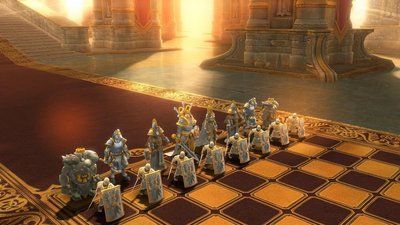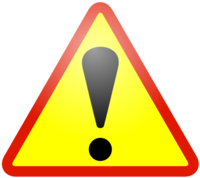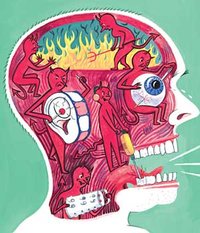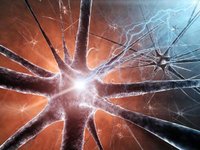Feedback

Notice
- In this section I have shared feedback on my case including what worked well (Areas of Success) and what could have been better executed (Areas for Improvement).
- Also included is feedback on how I managed my stress and my time during court proceedings, which needless to say, are key factors in these types of situations. This section maybe of interest to those who are considering litigation.
Maintaining Consistency and Direction

Maintaining Consistency with Evidence
Upon advice from my lawyer, Dr. Judson recorded the history of symptoms in Section One of Report One using the same wording that appeared in the evidence. This included my handwritten notes to the prescribing doctor together with entries from the patient files they were contained in. The purpose was to remain consistent with the evidence.
Maintaining Direction using DSM-IV-TR
The fact that Dr. Judson applied the DSM-IV-TR diagnostic criteria to my case was good because it added direction to proceedings (before, the DSM-IV-TR diagnostic criteria were introduced into my case, the defense continued to avoid issues and persisted with arguing on different planes).
The fact that Dr. Judson was able to apply the DSM-IV-TR diagnostic criteria directly to the evidence (after the initial High Court judge ordered Dr. Judson be sent English translations of the patient files from Japan) was good because we were able to apply a world recognized diagnostic standard directly to the official evidence, which allowed us to maximize the credibility of our arguments.
The fact that Dr. Judson included a cumulative summary in his reports was good because it enabled us to add to the bigger picture each time as facts continued to unfold based on the evidence. This was important for keeping facts consistent with one another whilst avoiding potential for any unintentional inconsistencies.
Top of Page
Notice
- NB: There has been some controversy over the DSM, and apparently, doctors can also use these criteria to their advantage, so in my case, there was sufficient consultation with my lawyer.
- The DSM-IV-TR Diagnostic Criteria for Drug (substance) Dependency are quoted from Section 2 of Addiction Report One. These helped to define the issues for litigation in my case.
Maintaining Consistency with Facts
One of the very first things I did during the preparatory stages of my case was to create a blueprint of times and events based on the evidence (“Sequence of Events”). Then whenever I wrote a statement, forwarded information to either my lawyer or doctor, or whatever, I always referred to this blueprint.
Doing this enabled me to keep my facts straight and consistent throughout the duration of proceedings. The ability to avoid contradictions is important for maintaining credibility, which the defense will try attack at every opportunity, even when there aren’t any contradictions.
Maintaining Accuracy
Although, I was advised that everything doesn’t need to be perfect and that we could settle for about 80% accuracy, I always believed that there was going to be room for error (10~20%) anyway.
So I decided to aim for 100% accuracy which I estimated would have given us an 80~90% accuracy rate once the room for error had been entered into the equation. Subsequently, in hindsight, I feel we achieved an accuracy rate well in excess of 90%.
NB: If I only aimed for 80%, when the room for error is entered into the equation, this could have resulted in a final accuracy rate of around only 70%.
Top of Page
Throughout the duration of my case, I feel that we maintained a very high level of accuracy and consistency. Subsequently, there is only one area I feel could have been better executed. This area relates to the defense’s counter argument using an ambiguous umbrella diagnostic term commonly used in Japan called “Autonomic Nervous Disorder”.
Although, this term has absolutely no medical grounds for ruling out benzodiazepine dependency, it ended up being the determining factor in the judge’s ruling. So what could we have done better to avoid this?
In hindsight, I feel we should have made the defense define exactly what they meant by saying that I had such a condition, and what they propose the exact cause of it was. After all, they’re the ones claiming it, so they should be the ones responsible for defining what it is meant by it (rather than the onus being on us).
Then once they have committed to an explanation, it would have been easier to set about disproving their claims whilst avoiding the power of ambiguity the defense were able to derive from the use of this ambiguous umbrella diagnostic term.
Also, I feel it would have been helpful if Dr. Judson included a more detailed explanation in his reports about how benzodiazepines affect the whole nervous system, both the central nervous system and the autonomic nervous system, and explain how it makes the entire system hyperactive due to the development of tolerance, adding that this is not a “disorder”, but rather the body’s natural response to such circumstances, and explain in more detail exactly why and how this happens (See page on Autonomic Nervous Disorder).
Top of Page
Managing Techniques

Below are some strategies I found useful for coping with the stress and pressure of my court case. A lot of it is not rocket science, but as they often say “simple is best”.
It must also be considered that everyone responds to stress in different ways, so it may be a case of individuals finding what works best for them.
Maintaining Health and Balanced Lifestyle
I felt this formed the fundamental basis for stress management in my case, which included sleeping at regular times, eating regular nutritious meals, regular exercise, and scheduling time out for refreshing (e.g. going to a hot spring etc).
Maintaining Time Management
Managing my time well helped to maximize progress and efficiency. It also helped to relieve some of the pressure caused by the constant incoming flow of demands and strict deadlines. See Time Management below for details.
Maintaining Control (Practically)
The demands of the case often had a way of taking over, so I felt it was important for me to have control over the case, and not the case have control over me.
To achieve this, I scheduled in times to work on the case, and kept it separate from my work, exercise time, social life, etc (although it was good to talk to 1 or 2 friends about my case on occasion). It was often an extremely fine line between maintaining balance and making progress but I did achieve it.
Another example of exercising practical control was that I would sometimes choose not to look at my e-mail, even though I knew full well that there was likely something in there asking for me to do something. Instead, I chose to look at it when I felt ready to. There were obvious risks with this, and I had to exercise initiative and judgment as well.
Maintaining Control (Mentally)
I found maintaining control practically was one thing, but to maintain control mentally was another. This involved shutting the thought processes down during times that were not scheduled for working on the case.
I did this by mentally creating a series of boxes in my mind. Each box was for a different purpose. For example, I had a work box, a court case box, a gym training box and so on.
When I began working on my court case, I would mentally open the court case box, and I would close it again when it was time to do something else. Inevitably, thoughts of the case would creep back when trying to go to sleep etc. but then I’d just say to myself “No, that box is closed now – it’s not time for that”. This helped me to separate my case from other things on a mental level.
Another technique I used was when I couldn’t stop my mind thinking about the case (at times I didn’t want to think about it), I would just simply say to myself the word “nothing”. I later learned that this is in fact a recognized psychological technique that has a proper name, although I can’t remember what it’s called.
Taking Time Out / Relaxation
Taking the time out to do the things I enjoyed was also an important part of stress management for me. Even if it was just a jog along the riverside or taking 10 minutes to water the vegetable garden in between working on the case, it helped me to refresh, and subsequently, I found it actually improved my overall performance when returning to work on the case again.
I also found doing things like Yoga, Tai Chi and breathing (Stomach breathing) exercises to be very beneficial for slowing down the thought processes and resetting the body and mind.
Exercise
I found that regular gym sessions gave me excellent relief from the stress of my court case, as I could burn of a lot of frustration. It also had the added benefit of creating a more robust body and mind that was more resilient to stress.
Attitude / Approach
My Mother always told me, as her Mother had always told her, expect nothing and you won’t be disappointed. Although I put 100% into my case, I did so whilst avoiding the expectation of winning.
I needed to because the Japanese courts appear to have a reputation for protecting the perpetrator whilst failing to provide justice to the victims when it comes to big guy versus small guy.
Despite having no realistic chance of winning from the outset, I put 100% into my case because I believed in it and I felt it was something I needed to do.
The defense attacked me and my credibility at every opportunity, but I never let it get to me, as that was to be expected. I just maintained my focus on the facts, the evidence, and the importance of what I was doing, not just for me, but for society in general.
I often likened this mental approach to comments I had heard on TV from Olympic swimmers. Namely, I wasn’t thinking about my rival in the next lane, I was just focused on trying to swim the best race that I possibly could.
Top of Page
Below are some of the methods I used for time management in my case. I imagine that this is different for everyone and especially difficult for those with families. In my case, I was single and living alone. Being single was good in that I could manage my own time, but on the other hand, it also meant that I had to do everything by myself. The main advantage time-wise in my case was that my job consisted of several (unpaid) breaks per year.
Time Allocation for Specific Tasks
In order to manage time more effectively, I divided my tasks into 2 main groups as follows:
- Accuracy dependent tasks requiring a great deal of time and thought
- Non-accuracy dependent tasks that can be achieved in a short period of time
An example of (1) above would be writing statements, document preparation etc. An example of (2) above would be photocopying, exchanging e-mails, organizing document releases etc.
I would work on the accuracy dependent tasks mainly on whole days off, and I would work on the non-accuracy dependent tasks for just a couple of hours after work and so on. The reason being is it sometimes took an hour or two just to get my mind focused on an accuracy dependent task, and so unless I was able to allocate sufficient time during a single session, it would have ended up being less productive and an inefficient use of time in the long run.
General Time Management
As far as general time management, below are some of the methods I employed from day to day in order to help maximize the amount of time available to work on my case.
Cooked enough food to last about 4 meals at a time.
Did my washing on Friday nights pre-hanging it on clothes hangers, so all I needed to do was hang it out on Saturday morning allowing me to begin work right away. Also, had all my work clothes dry-cleaned.
I often used housework, shopping etc as break times when working on my case which meant that I could have a break away from my work whilst getting other things done at the same time.
I sometimes delegated tasks to friends and family where possible. In particular, I had to employ the services of a translation company for some of the reports due to time constraints.
The truth is, it was never easy, but the small day to day things such as those above were certainly helpful.
Top of Page
Challenges

Below are just a few of the challenges I faced in my case:
- Taking up a medical law case in a country (Japan) and language (Japanese) different from my own.
- Fighting against a world famous doctor, the hospital, and the teams of lawyers and entire networks that no doubt sat behind them.
- Starting proceedings soon up from my sick bed still in a weekend state and vulnerable to stress due to the previous benzodiazepine dependency.
- Relaying communications between a harsh Japanese speaking lawyer and a sensitive English speaking doctor.
- Trying to meet strict court deadlines with no allowances made for the extra work borne from working across two countries and two languages.
- Trying to overcome the frustrations and difficulties created by an ambiguous umbrella diagnostic term used by the defense partway through proceedings (See Autonomic Nervous Disorder).
- Accounting for every single prescription dose for a course of treatment, which dated back 10 years prior to the case, after the Tokyo District Court judge had raised a related issue unfairly (See article 12 of Justice or Not?).
- Fighting the case alone, apart from the help of my lawyer, for 6 years in the courts whilst working full time and living alone without any immediate support around me.
- Needing to fight the case under the above circumstances without getting stressed because the defense were claiming that I hadn’t been suffering from benzodiazepine dependency but “Autonomic Nervous Disorder” or stress.
- Therefore, I had to endure the most stressful experience imaginable whilst making sure not to show any signs of stress. This was INCREDIBLY CHALLENGING – an extreme razor’s edge balancing act between maintaining progress and my health (the pricks! But I did it!).
- Disciplining myself to stick with the case for over a 10 year period (including preparatory work) at a time when all my friends were making the most of their lives and enjoying the usual day to day things that most people would normally do.
- Preparing my written appeal to the Supreme Court of Japan during the 3/11 disaster as I vacated my adopted hometown of Fukushima in the midst of radiation fallout, rotational blackouts, aftershocks, job loss and homelessness.
- Trying to stay motivated after the case had ended whilst residing in a State Housing Unit as an evacuee, without any support around me. I did this by building this website and assisting with the finalization of The Ashton Manual in Japanese.
Top of Page

The primary language of this website is English. Japanese appears as translations only (except for some original court documents).
These translations have been done by many different translators including me. Therefore, there are differences in quality and styles.
Please understand that I am not native Japanese and subsequently there are parts that may sound unnatural in Japanese.

Some parts of this website still have not been translated into Japanese. If anyone (native Japanese) would like to help on a volunteer basis, please contact mentioning the part you would like to translate. Thank you.
Seems people are all saying the same things over and over…

- I was like a zombie
- It felt like I was in hell
- It was much harder to come off benzodiazepines than anything else I'd ever had before
- It took a chunk of my life away
- It has destroyed my life
- The doctor never told me they were addictive / The doctor told me they weren’t addictive
- When I complained my condition was worsening the doctor prescribed me more...
The informed consent argument formed an integral part of the case because it was needed to prove negligence.

Without negligence there would have been no accountability, and therefore, no case from the outset.
In section 4 of his fourth report, Addictive Medicine Specialist, Dr. Graeme Judson explained the principles of prescribing and informed consent in relation to my case and sample applied.
The monitoring argument also formed an integral part of the case because it too was needed to prove negligence.

As above, without negligence there would have been no accountability, and therefore, no case from the outset.
As with informed consent, in section 4 of his fourth report, Addictive Medicine Specialist, Dr. Graeme Judson explained the principles of prescribing and monitoring in relation to my case and sample applied.
Did You Know?

Tolerance doesn’t always develop across all symptoms.
For example, someone might develop tolerance to the hypnotic (promotion of sleep) effects but not to the anxiolytic (anxiety relief) effects, or they might develop tolerance to some symptoms of anxiety and not others. Tolerance to the various actions of benzodiazepines develops at variable rates and to different degrees (See The Ashton Manual).
For many months and years I had to endure the effects and suffering of a horrible benzodiazepine dependency.

During my quest to seek recognition for this, I thought the defendant hospital, doctor and courts had a lot of nerve to turn around and tell me that I wasn’t dependent (despite having attended a drug rehabilitation program with follow-up consultations lasting more than a year)...

You may be interested to see the notes on corrections of Japanese translation errors, which were contained in the dependency medical report translations, together with explanations of the nature of these errors, and consider their potential implications on the case.
This is very interesting!

This section focuses on some of the apparent injustices of the Japanese courts in my case. To help highlight these, some parts of this section include cross-referencing between the High Court Verdict and the Dependency Reports which were all based on the official evidence and the DSM-IV-TR diagnostic criteria for dependency.







